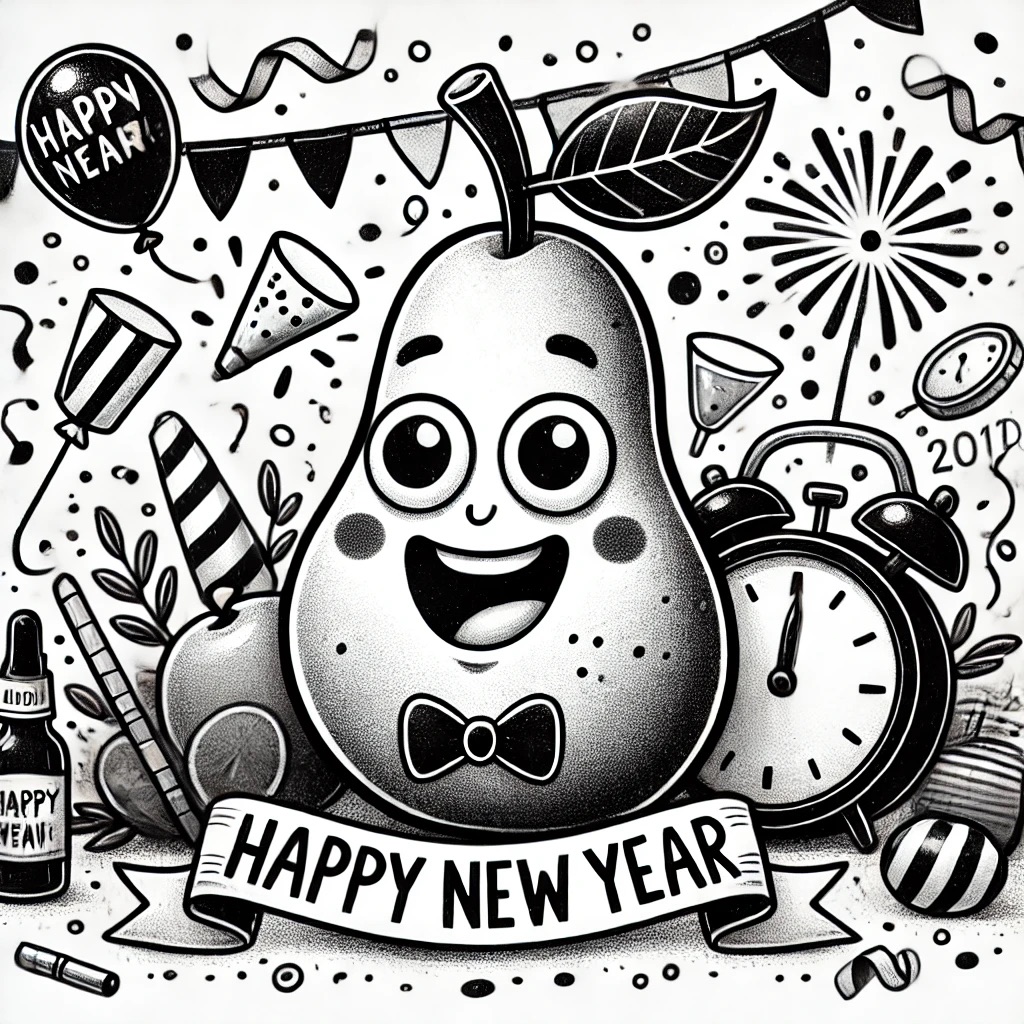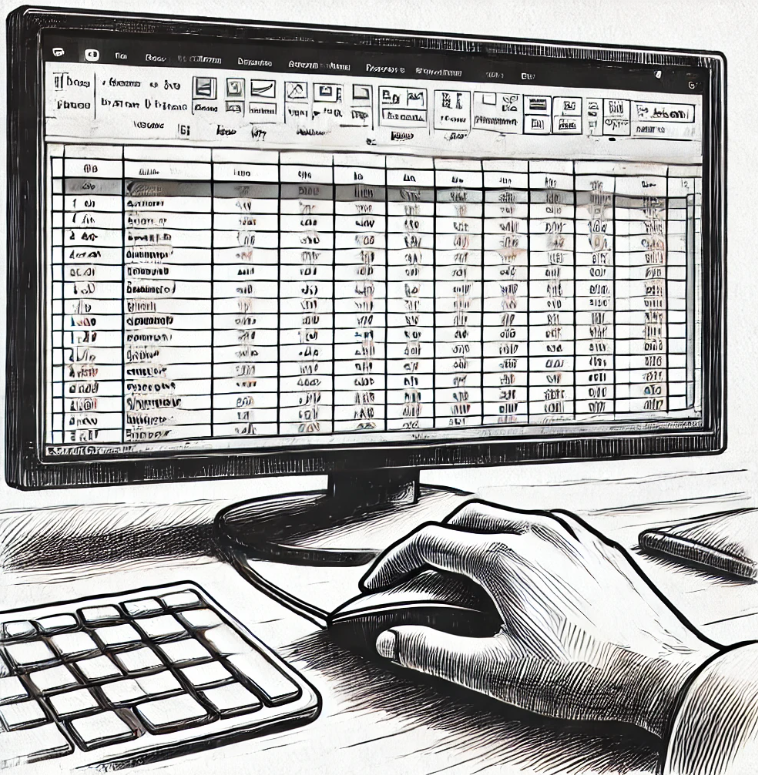
As we enter the new year, you may have already been thinking about what goals you will be setting yourself for 2025.
If you haven’t, it’s not too late to start thinking about these and making changes to align with your core values. This goal setting doesn’t need to wait until the next new year, it can be adopted at any time! Just be realistic with the results you hope to achieve in the timeframe given.
When Were New Year’s Resolutions Founded?
New Year’s resolutions have been said to date back as far as 2000 BCE during the time of the Babylonians. Commitments were made that if kept would put them in their gods’ good books for the following year and if not, would see them fall out of favour.
With New Year’s resolutions dating back so far and beginning on a basis where failing them would have such dire consequences, we must be professionals in goal setting for the year… Right?
The Number of People That Complete Their Goal’s
Go Compare’s research found that only 1 in 10 people will successfully achieve their New Year’s goals.
This is staggeringly low, and it’s surprising that 90% of people fail to achieve goals that could significantly improve their lives.
I truly do not believe this is a result of a lack of motivation or laziness, I believe it stems from how the initial goal was set.
How to Set Your New Year’s Goal’s
Successful New Year’s resolutions are generally set to develop either the mind, body, soul or a combination of the three.
To develop the mind we can include goals that involve:
- Strategic thinking and problem solving
- Pursuing knowledge through literature and media
- Practicing mindfulness, meditation and relaxation techniques
- Self awareness strategies to build emotional intelligence
To develop our bodies we can include goals like:
- Exercising regularly
- Increase daily movement
- Stretching and yoga
- Self maintenance regimes for skin health
- Improving our diets and staying hydrated
- Placing focus on sleep and recovery
- Maintaining health and dental check ups
To contribute to the fulfilment of our souls, we can include goals such as:
- Making time for self reflection e.g. journaling
- Practicing gratitude
- Study spirituality and philosophies to broaden thinking
- Engage in acts of kindness such as volunteering or donating to charity
- Engage in activities and hobbies that line up with your goals and core values
When setting your goals for the year, think of the SMART system by George T Doran. Make your goals:
- Specific
- Measurable
- Achievable
- Relevant
- Time-Bound
We will look at some of the most common goals next and how to rewrite these to fall within this system, getting us into that 10% who will be completing their goals in 2025.
The Most Common Goal’s and How to Structure Them
Using the results from Go Compares research, we can take the most common New Year’s resolutions and write these into the SMART system.
Lose Weight
35% of people cited ‘losing weight’ as one of their goals. Let’s rewrite this goal in line with the SMART system.
“By the end of this year, I would like to reduce my total body weight by 6kg to add more comfort to my daily activities.”
The above goal is specific, it provides the target amount of weight which will be lost. It’s measurable as we can compare the weight lost against the goal weight at any time throughout the duration of the project and the weight goal can be adjusted to be realistic for the individual. The goal is relative as this individual wants more comfort in their daily activities and losing excess weight can support this. Finally it is time-bound giving a one year timeframe to the goal.
Eat More Healthy
32% of people included “To eat healthier” as one of their goals
“This year I would like to improve my diet and eat more healthy so I feel better in myself. To achieve this I want to commit to the following and carry out a final review at the end of the year:
- Reduce takeout to no more than once per month and focus on home cooked meals
- Eat 5 different vegetables a day
- Don’t drink alcohol during the week unless it is an organised social event or holiday”
This goal has been kept achievable by ensuring that room for exception is present. Often rules about not drinking alcohol are installed, but for many this is a large part of a number of social interactions. By not allowing yourself permission to have off periods from your goals, you are more likely to fail. Be flexible to keep the goal achievable, but not so flexible that you can find excuses to not do what you need to do progress each day.
Exercise more

30% included “To exercise more” as one of their goals. We can rewrite this goal as:
“This year I would like to do the following to improve my volume of exercise. I would like to do this to increase my base fitness and put myself in a position to take part in some fitness events in following years:
- Move an average of 10,000 steps per day, daily average taken at the end of the year
- Run a minimum of 300miles this annum
- Record a minimum of 3 strength workouts per week”
The above may be achievable for one person, but maybe not another. Make sure the parameters you set yourself are realistic to ensure you remain motivated to keep progressing.
Improve Mental Health

21% included “To focus on my mental health” as one of their goals. We can rewrite this goal as:
“This year I would like to improve my mental health by focusing on self reflection and mindfulness. I would like to do this to put me in a better headspace and improve both my social interactions with others and my decision making. To do this I will:
- Write in a journal at least once per week, summarising how the week has gone, what I am pleased with and where I could improve. At the same time write my goals for the following week
- Every day when I wake up, remind myself of the things I am grateful for”
Spend More Time With Family and Friend’s

20% included “To spend more time with loved ones” as one of their goals. We can rewrite this goal as:
“This year, I want to allocate more of my focus to my friends and family. I would like to do this to be more present with those I care about. To do this I will:
- Have dinner with my family at the table every day and give them my undivided attention and getting involved when discussing their day
- Contact one of my distant friends each week to maintain relationships”
Sort Out Finances and Cut Back on Outgoing’s
20% included “To improve my financial situation” as one of their goals. We can rewrite this goal as:
“This year I would like to improve my financial situation. I would like to do this to provide stability in my life and provide the means to fund additional education. To do this I am going to:
- Pay 20% of my earnings directly into a savings account to build a robust emergency fund
- Carry out monthly budgets to forecast expensive periods and prepare for them ahead of time “
The Structure of This Goal Setting
Each of the rewritten examples has been done so in the following format and is a formula that can be used to create basic SMART goals. Replace the placeholders with your own statements.
During {TIME FRAME}, I would like to {THING TO ACHIEVE} because {WHY IT WILL BENEFIT YOU}. I will do this by {MEASURABLE AGENDA}.
Summary
Think about not only what you want to achieve, but why. Does achieving this goal act as a stepping stone to future goals or generally support your core values? If not, question why it is one of your goals.
Make your goal achievable. Be honest with yourself as it is easy to over commit. Remember, it is more motivating to set modest goals and experience success than to set overly ambitious ones and feel discouraged.
Make sure your goal is specific. Specificity is the key to ensuring there are absolutely no questions about what we want to do and why. By having a clear understanding of your goal, it will become simple to remind yourself why you are doing and the positives during challenging periods.
Happy new year and good luck!






